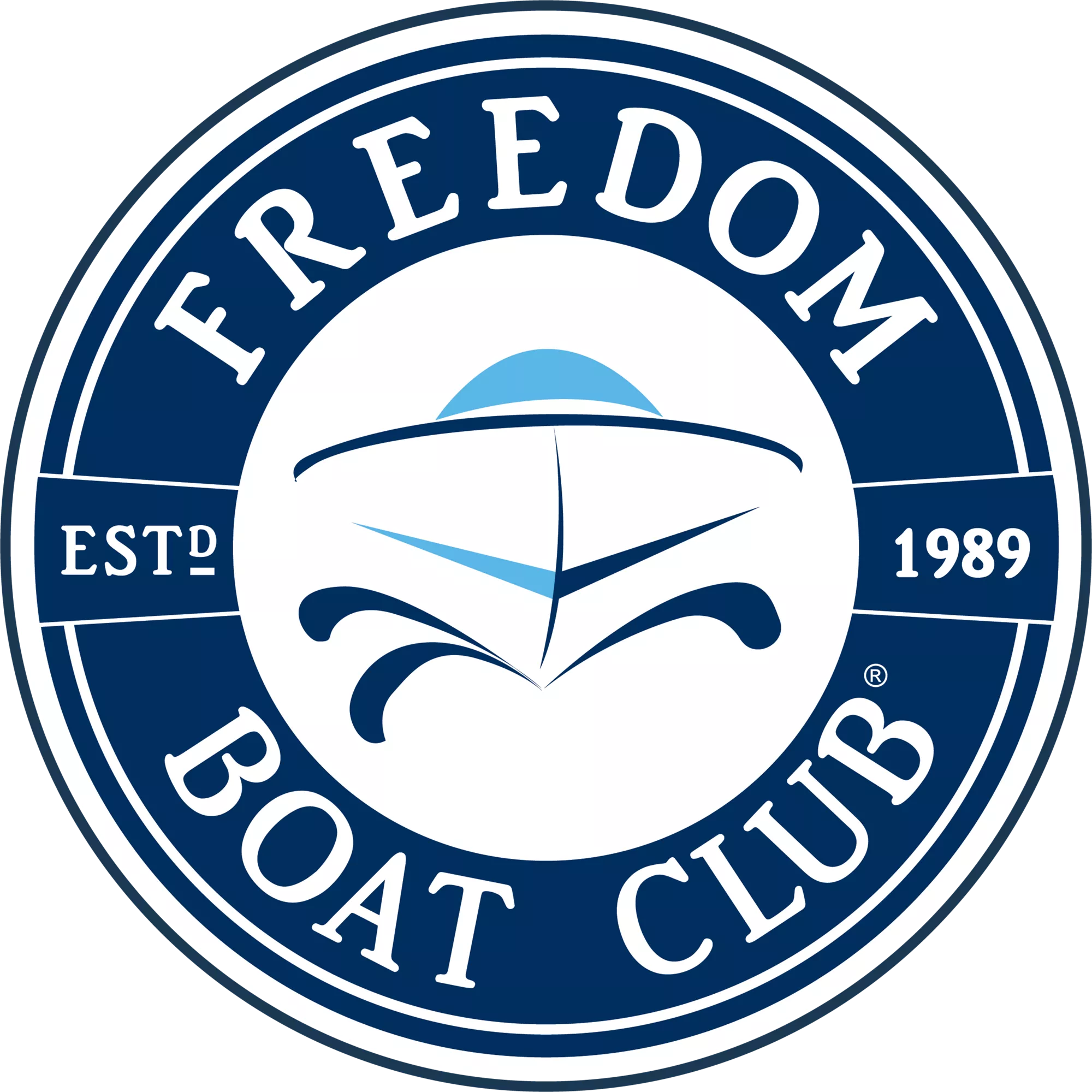
How Freedom Boat Club Prioritizes Boating Safety
In 2023 alone, Freedom Boat Club members took more than 600,000 boat trips throughout North America, Europe, and Australia. With more than 90,000 active members who regularly take advantage of our unlimited guest policy, we're getting a lot of people out on the water! And while we’re passionate about increasing access to the water, an equally important part of our agenda centers on the foundation of recreational boating safety.
A Safety-First Environment
Freedom Boat Club cultivates a safety-first environment on the dock by regularly encouraging/reminding members to board or disembark vessels free of bags/gear in their hands, using wrist to wrist technique when assisting someone boarding or disembarking, and reminding them to always have three points of contact as well as other safety related reminders. We also help members make the best decisions for a safe day out on the water by giving destination and boating itinerary recommendations based off local weather conditions and other environmental factors.
You don't need previous boating experience to join Freedom Boat Club. We welcome enthusiasts of all skill levels, making it easy for everyone to embrace life out on the water. Our various safety, training and educational programs are very popular among members. They are designed to ensure you're ready to take the helm prior to your first trip and allow you to hone your skills at your own pace.
Our Boating Safety Programs
Our three core training classes (New Member Orientation, Intermediate and Advanced Offshore) are all National Association of State Boating Law Administrators (NASBLA) verified courses. And many of our clubs also offer additional trainings for local scenarios such as lock training or wake boat operation. We also require every new FBC member to receive their NASBLA Boater Safety Card.
New Member Orientation (NMO)
Every Freedom Boat Club member must first complete NMO with one of our licensed Coast Guard captains prior to making their first reservation. Unlike some outside classes with main content of cursory bookwork, our NMO is a blend of classroom and on-water training. Our captains cover a detailed, prescribed course of instruction. Following successful review and completion, our members may then reserve boats and sign up for additional training as needed or desired.
Additional Free & Unlimited Training
This resource helps to ensure our members feel confident every time they hit the water, with the goal of keeping themselves and fellow boaters safe. A member can sign up for as many 1:1 trainings as they need at no additional cost. In addition, some of our club locations may offer intermediate or advanced classes for offshore access.
Ongoing Boating Safety Initiatives
At Freedom Boat Club, our focus on boating safety is not a one-time thing. It is an important, ongoing initiative that receives ongoing focus at all levels of our organization. Additional initiatives include:
- On-going partnership with the Sea Tow Foundation to designate observers and sober skippers. We have and continue to educate our members who take pledges to be part of this safety effort.
- Checkout procedures before each trip out to ensure members have – and know how to access – all safety equipment onboard their vessel. This equipment includes a fire extinguisher, throwable flotation device, visual signaling device, sound signaling device, and enough life jackets for all passengers onboard.
- The development and promotion of boating safety content from our captains for on-going education and reminders of proper boating etiquette.
- Advocacy during the National Safe Boating Council's annual National Safe Boating Week, which kicks-off the Safe Boating Campaign each year.
Additional Safety Tips
- 1. It's a best practice for all passengers to wear a personal flotation device (PFD) when aboard a moving vessel. According to BoatUS, a U.S. Coast Guard interim rule requires children under the age of 13 to wear a U.S. Coast Guard approved life jacket that fits.
- 2. We recommend having a first-aid kit and VHS radio onboard in addition to the required safety equipment.
- 3. Always drive at a safe speed and adhere to speed recommendations in the waterway you're boating in.
- 4. Remain vigilant of your surroundings and avoid buoys, channel markers and other hazards.
- 5. Minimize distractions and pay careful attention when operating the watercraft. Inattention is a common cause of boating accidents which can result in serious injury or even fatality.
- 6. Always have a float plan. A float plan ensures that someone else knows where you are boating and when you are expected back. This can help expedite rescue efforts in the case of an emergency.
- 7. Those operating the boat should avoid alcohol completely. Being impaired has resulted in serious accidents involving boat propellers and accidental drownings.
- 8. Seek additional training to refine your safety and navigation skills. If you are not a Freedom Boat Club member with access to free and unlimited trainings, we recommend checking out the 3-hour courses offered by BoatClass.
We hope you will join us in raising awareness for boating safety and in practicing safe boating activities, whatever your port of call. If you're interested in learning more about boating safety, check out our Tips for Safe Boat Navigation.
